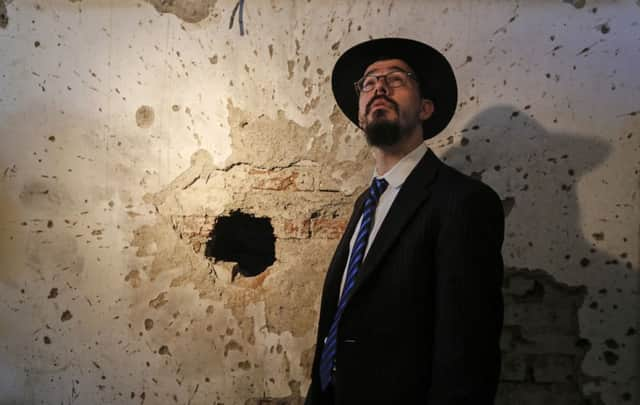Mumbai Jewish centre reopens after six years


The attacks on the Chabad Centre and other locations in India’s financial capital left 166 people dead.
Among them were six people from the orthodox Jewish centre, including Rabbi Gavriel Holtzberg, 29, and his pregnant wife Rivkah, 28.
Advertisement
Hide AdAdvertisement
Hide AdTheir infant son escaped in the arms of his Indian nanny. The two now live in Israel.
Rabbi Israel Kozlovsky, who now runs the Mumbai Chabad Centre, said the rebuilt six-storey Nariman House would host a £1.5 million Jewish Museum as well as Mumbai’s first memorial to those killed in the attacks, which also targeted a railway station, a tourist café and the luxury Taj Mahal Hotel.
The building’s memorial includes a recreation of the late rabbi’s home and videos about Jewish culture, according to lead designer Nick Appelbaum.
“This is the day we can celebrate their lives and the message of light that they spread,” the dead rabbi’s father, Rabbi Nachman Holtzberg, said to a roomful of rabbis who had travelled from centres across Asia set up by the orthodox Jewish group Chabad-Lubavitch.
The group has a presence in more than 80 countries and has grown rapidly in the past two decades in Asia.
Since the terrorist attacks, the Mumbai Chabad Centre has conducted spiritual services and social outreach from temporary locations in the city. Reconstruction had been delayed while Mr Holtzberg’s parents briefly fought the New York Jewish group in a Mumbai court over who would control and redesign the property.
The property title lies with the Chabad of India Trust, which Mr Holtzberg had helped set up in 2005.
But the two sides dropped the case in 2011, with the organisation assuming stewardship.
Advertisement
Hide AdAdvertisement
Hide AdChintan Sakariya, a businessman who witnessed the attack on the centre, cited “mixed” feelings over its reopening.
He added: “They’re coming back strongly and we support that. But there’s going to be a lot of inconvenience for residents, a lot of security, blockades.”
In 2012, India executed Mohammed Ajmal Amir Qasab, the sole surviving gunman from the attacks. He was part of a heavily armed militant unit which arrived in Mumbai by sea on 26 November, 2008.
The ten men split into groups to attack various targets. They stormed the Taj Mahal Hotel, Oberoi Trident Hotel and the Jewish centre in a terrorist action which went on for more than two days. Pakistan-based banned militant group Lashkar-e-Taiba was blamed for the attacks, which further soured India-Pakistan ties.
Rabbi Moshe Kotlarsky, of the Jewish group’s educational arm, said the reopening should be seen as a message. “You can overcome challenges, even the most horrific,” he said.